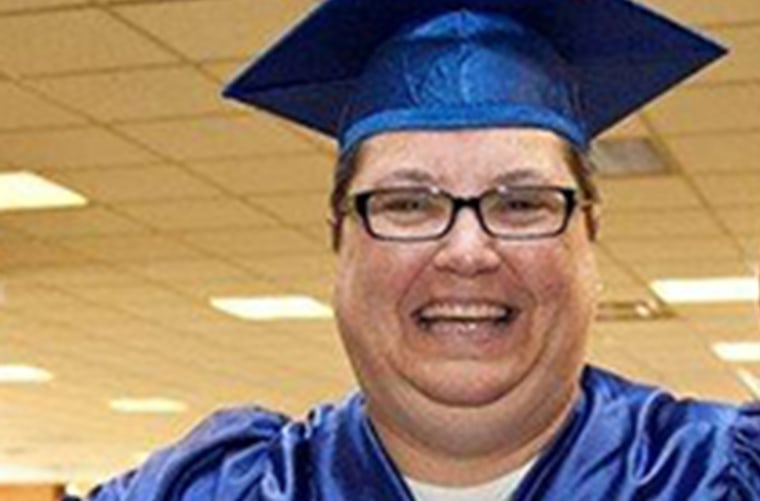The Georgia Department of Corrections will not say who is testing cloudy execution drugs that have brought lethal injections to a halt in the state, citing a recent law that cloaks the process in anonymity.
The statute, which was been upheld by the state's highest court, does not specifically mention testing, but the state attorney general's office says it provides blanket confidentiality to "any person or entity to who participates in or administers the execution of a death sentence."
The pentobarbital that George intended to use in the execution of Kelly Gissendaner on Monday was obtained from an unknown specialty pharmacy. The procedure was called off at the last minute when officials noticed the solution appeared "cloudy," even though it had been tested and approved for use earlier in the week.
Corrections officials said Gissendaner's execution and the scheduled execution of another death-row killer would be postponed until an analysis of the drugs is completed. They refused, however, to provide any details about the testing process.
"We are concerned that we are not permitted to know anything about the provenance of these drugs, including where and how they are tested," said Brian Kammer of the Georgia Resource Center, who has represented death-row inmates but is not on Gissendaner's defense team.
"We have litigated these issues, to no avail. Perhaps the fact that the drug solution appears defective in some way, even post-testing, will spur second thoughts about the secrecy law."
Death-penalty states across the country are struggling to find the chemicals needed for lethal injections because pharmaceutical companies have stopped selling them to prisons for the purpose of killing people.
Georgia and other states have turned to compounding pharmacies, which don't have FDA approval, to buy small, specially mixed batches of the drugs.
They have also made the names of those pharmacies secret in an effort to supply lines open. In the past, compounding pharmacies that were unmasked were targeted by protests and, authorities say, threats — and some got out of the execution business.
Georgia's secrecy law was upheld in May, with the court dismissing concerns that drugs prepared in secret could be tainted and cause unintended side effects, such as seizures.
"Such a side effect obviously would be shockingly undesirable in the practice of medicine, but it is certainly not a worry in an execution," the Georgia Supreme Court judges wrote in the majority opinion.
One of two dissenting judges wrote that the secrecy deprived condemned inmates of due process and "has the effect of creating the very secret star chamber-like proceedings in which this State has promised its citizens it would not engage."

Gissendaner challenged the secrecy of the process in an 11th hour filing with the U.S. Supreme Court, which had not yet ruled when her execution was postponed.
The only woman on Georgia's death row was convicted of orchestrating the murder of her husband, Doug, by her then-lover, who got a life sentence.
Hundreds of clergy members have pleaded for mercy for the mother of three, noting she completed a theology program in prison and appears to be a changed woman.
Doug Gissendaner's family, however, says she deserves to die.
"Doug is the true victim of this pre-meditated and heinous crime," they said in a statement. "We, along with our friends and supporters and our faith, will continue fighting for Doug until he gets the justice he deserves no matter how long it takes."